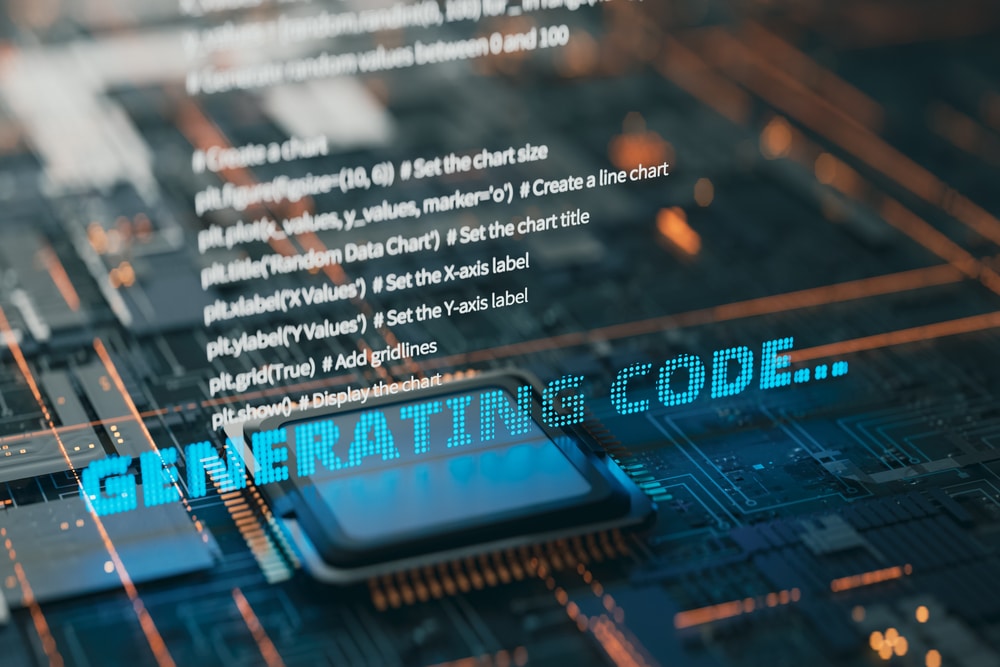
Generative AI: closing the developer gap and redefining the software moat [Q&A]
Generative AI (GenAI) is reshaping software development, closing the long‑standing gap between surging demand for new applications and the limited supply of skilled developers. But this AI‑driven leap in productivity comes with an unexpected twist: it’s also dissolving the traditional technological edge that once set companies apart.
So where does sustainable advantage come from in this new world? We sat down with Matthias Steiner, senior director of global business innovation at Syntax, to explore how enterprises can redefine their competitive edge in the GenAI era.

Less than a quarter of organizations are securing AI-generated code
A new report reveals that 95 percent of organizations now rely on AI tools to generate code, yet only 24 percent apply comprehensive IP, license, security, and quality evaluations to that AI-generated code.
The study from Black Duck shows that that organizations without strong dependency management, automation, and SBOM validation are already falling behind on their ability to detect and remediate critical issues.

Citizen developers dominate, the rise of AI, code as the new Latin -- development predictions for 2026
Software development, perhaps more than any other area of IT, has seen a major impact from the rise of AI. It’s become easier for anyone to develop apps but that doesn’t come without risks.
Industry experts look ahead to what we can expect to see in the development space, from AI and more, as we head into 2026.

Chainguard aims to improve stewardship of mature open source projects
What happens to open source projects when they reach maturity? When a project has fulfilled its purpose and become foundational to customer workloads, it no longer requires a roadmap of sweeping changes. What it needs is safe, predictable maintenance after the creators have moved on.
However, it remains essential that stays OSS safe and supported when its maintainers are ready to step away, or the project no longer needs constant upkeep. To address this challenge Chainguard is launching EmeritOSS, a model for supporting mature open source projects and long-term OSS sustainability for the community.

Zencoder aims to end vibe coding and bring engineering discipline
While chat interfaces have popularized AI coding, uncoordinated agents can produce ‘slop’ -- code that looks correct but fails in production or degrades with iteration.
To address this problem Zencoder is introducing its new Zenflow app, a free orchestration platform designed to transition the industry from ‘vibe coding’ to AI-first engineering.

AI is set to reshape software development in 2026
In order to thrive in 2026 developers will need to align human creativity with AI, delivering software that is not only faster and smarter, but also more transparent, more intuitive, and more human-centered than ever before.
This is the conclusion of the latest software development trends report from Infragistics. It looks at how AI-driven intelligence, predictive UX, adaptive design systems, and ethical data governance will define the next era of digital innovation and what technology leaders can do to prepare.

Developers more productive with AI but only 18 percent fully trust it
New research finds that 85 percent of developers report higher productivity with AI, yet only 18 percent say that they fully trust it.
The study from Techreviewer was conducted among senior developers, CTOs, and tech executives from 19 countries. It shows that 64 percent of developers use AI tools every day, with only two percent never using them. ChatGPT leads in popularity at 84 percent usage, followed by Claude (64 percent), Copilot (56 percent), and Cursor (53 percent).

Over 71 percent of in-house IT builds fail to deliver
A survey of over 2,000 IT and security decision-makers finds that 71 percent of in-house IT builds are eventually abandoned. In heavily regulated industries like manufacturing and finance this rises to 83 percent, which underscores how complexity and compliance pressures make homegrown systems difficult to sustain.
The study from Exclaimer calls this ‘The DIY Mirage’, a false sense of control and efficiency that fades as maintenance demands, compliance risks, and long-term costs grow.

CVE system struggling to keep pace with modern development
A new report finds that the Common Vulnerabilities and Exposures (CVE) system struggles to keep pace with the realities of modern software development.
The study from Sonatype analyzed 1,552 open source vulnerabilities disclosed in 2025 and found that nearly two-thirds (64 percent) lacked severity scores from the National Vulnerability Database (NVD).

Red Hat announces Project Hummingbird to boost cloud-native development
Today’s IT leaders frequently face a critical trade-off between delivery speed and systems security. AI-assisted and -generated coding tools accelerate development cycles, but this speed can run counter to the realities of managing multi-faceted, complicated software components.
This seemingly leaves CIOs with two choices, moving at the speed of business while balancing potential production systems risks, or being overcautious to the point of losing to competitor’s innovations.

New Gcore platform simplifies enterprise AI deployment
Businesses are keen to deploy AI but doing so across hybrid and regulated environments, and managing the resulting workloads, remains deeply complex.
This is why Gcore is launching Everywhere AI, a deployment platform that allows enterprises to deploy, scale, and optimize AI workloads flexibly across on-premises, hybrid, and cloud environments while maximizing performance, efficiency, and revenue.

81 percent of security teams lack visibility into AI coding
While AI adoption is now nearly universal, governance and visibility have failed to keep pace, according to a new report from Cycode.
The study shows that 97 percent of organizations are already using or piloting AI coding assistants, and all confirm having AI-generated code in their codebases. Yet, despite this near-total adoption, 81 percent lack visibility into AI usage and 65 percent report increased security risks associated with AI.

New AI testing solution helps avoid hallucinations
AI systems are only as dependable as the data and validation that lies behind them. Yet many organizations struggle to test AI models comprehensively across languages, regions, and use cases.
That’s why crowdsourced testing platform Testlio is launching a new, end-to-end AI testing solution as the latest addition to its managed service portfolio.

Life after DevOps -- the new initiatives challenging the status quo [Q&A]
The concept of DevOps has been around since the late 1980s and has been mainstream for the last 15 years or so. But there has recently been discussion around whether open-source platforms like System Initiative are challenging DevOps’ dominance.
We talked to Pablo Gerboles Parrilla, the founder and CEO of Alive DevOps, about what needs to change in how teams build and deploy software, and perhaps more importantly about what shouldn’t.

The rise of voice -- is typing holding developers back? [Q&A]
Voice is in the process of replacing the keyboard in ways that could shake the foundations of how developers work, collaborate, and even think.
We spoke with Natalie Rutgers, VP of product at Deepgram, to find out how voice-first development tools are gaining traction and why companies that fail to adapt risk losing their edge -- and their top talent.
